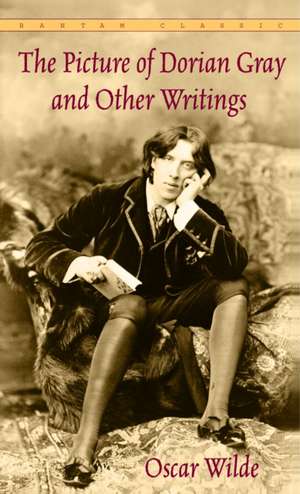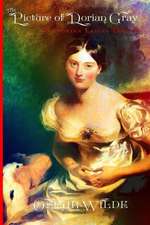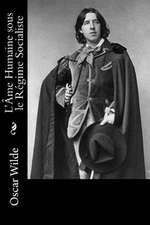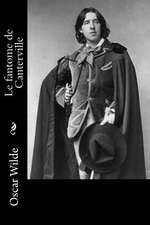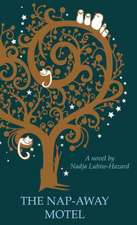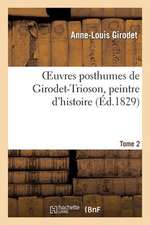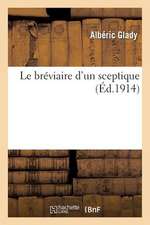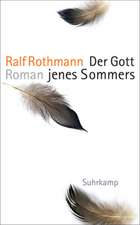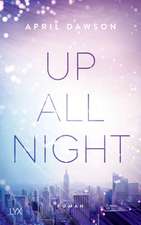The Picture of Dorian Gray and Other Writings: Bantam Classics
Autor Oscar Wilde Richard Ellmannen Limba Engleză Paperback – 30 noi 1982 – vârsta de la 14 ani
Every selection appears in its entirety–a marvelous collection of outstanding works by the incomparable Oscar Wilde, who’s been aptly called “a lord of language” by Max Beerbohm.
| Toate formatele și edițiile | Preț | Express |
|---|---|---|
| Paperback (2) | 36.26 lei 3-5 săpt. | |
| Bantam Classics – 30 noi 1982 | 36.26 lei 3-5 săpt. | |
| CreateSpace Independent Publishing Platform – 30 apr 2010 | 72.42 lei 3-5 săpt. |
Din seria Bantam Classics
-
 Preț: 39.98 lei
Preț: 39.98 lei -
 Preț: 35.46 lei
Preț: 35.46 lei -
 Preț: 32.53 lei
Preț: 32.53 lei -
 Preț: 33.77 lei
Preț: 33.77 lei -
 Preț: 29.86 lei
Preț: 29.86 lei -
 Preț: 32.08 lei
Preț: 32.08 lei -
 Preț: 34.03 lei
Preț: 34.03 lei -
 Preț: 36.91 lei
Preț: 36.91 lei -
 Preț: 31.42 lei
Preț: 31.42 lei -
 Preț: 30.66 lei
Preț: 30.66 lei -
 Preț: 36.04 lei
Preț: 36.04 lei -
 Preț: 27.22 lei
Preț: 27.22 lei -
 Preț: 42.88 lei
Preț: 42.88 lei -
 Preț: 33.19 lei
Preț: 33.19 lei -
 Preț: 38.76 lei
Preț: 38.76 lei -
 Preț: 36.63 lei
Preț: 36.63 lei -
 Preț: 44.30 lei
Preț: 44.30 lei -
 Preț: 41.84 lei
Preț: 41.84 lei -
 Preț: 33.60 lei
Preț: 33.60 lei -
 Preț: 31.26 lei
Preț: 31.26 lei -
 Preț: 32.08 lei
Preț: 32.08 lei -
 Preț: 42.06 lei
Preț: 42.06 lei -
 Preț: 35.46 lei
Preț: 35.46 lei -
 Preț: 32.53 lei
Preț: 32.53 lei -
 Preț: 44.94 lei
Preț: 44.94 lei -
 Preț: 39.17 lei
Preț: 39.17 lei -
 Preț: 51.30 lei
Preț: 51.30 lei -
 Preț: 33.35 lei
Preț: 33.35 lei -
 Preț: 34.83 lei
Preț: 34.83 lei -
 Preț: 40.59 lei
Preț: 40.59 lei -
 Preț: 37.51 lei
Preț: 37.51 lei -
 Preț: 33.60 lei
Preț: 33.60 lei -
 Preț: 39.55 lei
Preț: 39.55 lei -
 Preț: 39.66 lei
Preț: 39.66 lei -
 Preț: 28.61 lei
Preț: 28.61 lei -
 Preț: 46.77 lei
Preț: 46.77 lei -
 Preț: 28.04 lei
Preț: 28.04 lei -
 Preț: 37.92 lei
Preț: 37.92 lei -
 Preț: 47.80 lei
Preț: 47.80 lei -
 Preț: 34.42 lei
Preț: 34.42 lei -
 Preț: 44.52 lei
Preț: 44.52 lei -
 Preț: 36.91 lei
Preț: 36.91 lei -
 Preț: 35.89 lei
Preț: 35.89 lei -
 Preț: 34.01 lei
Preț: 34.01 lei -
 Preț: 31.96 lei
Preț: 31.96 lei -
 Preț: 31.31 lei
Preț: 31.31 lei -
 Preț: 39.57 lei
Preț: 39.57 lei -
 Preț: 58.13 lei
Preț: 58.13 lei -
 Preț: 33.05 lei
Preț: 33.05 lei -
 Preț: 48.85 lei
Preț: 48.85 lei
Preț: 36.26 lei
Nou
Puncte Express: 54
Preț estimativ în valută:
6.94€ • 7.22$ • 5.73£
6.94€ • 7.22$ • 5.73£
Carte disponibilă
Livrare economică 24 martie-07 aprilie
Preluare comenzi: 021 569.72.76
Specificații
ISBN-13: 9780553212549
ISBN-10: 0553212540
Pagini: 512
Dimensiuni: 110 x 178 x 25 mm
Greutate: 0.28 kg
Editura: Bantam Classics
Seria Bantam Classics
ISBN-10: 0553212540
Pagini: 512
Dimensiuni: 110 x 178 x 25 mm
Greutate: 0.28 kg
Editura: Bantam Classics
Seria Bantam Classics
Notă biografică
Oscar Wilde was born into a socially prominent Anglo-Irish family in Dublin in 1854. A gifted student, he entered Oxford in 1874, where he fell under the aesthetic influence of Walter Pater and John Ruskin. He was soon well known as a dandy, wit, and man-about-town, but married in 1884. THE PICTURE OF DORIAN GRAY was published in 1891, as was his essay, "The Soul of Man Under Socialism," but he found critical and popular sucess in the theater with his comedies: Lady Windermere's Fan (1892), A Woman of No Importance (1892) An Ideal Husband (1895), and The Importance of Being Earnest (1895). In 1895, the Marquess of Queensberry sought to end the close relationship between his son, Lord Alfred Douglas, and Wilde, publicly referring to Wilde as a homosexual. After losing a lawsuit against the Marquess for libel, Wilde was arrested and served two years of hard labor at Reading and Pentonville prisons. Wilde was deserted by his wife and friends and upon his release in 1897, he moved to France under an assumed name, where he finished writing "The Ballad of Reading Gaol," and traveled to Italy with Lord Alfred Douglas. Wilde died suddenly in Paris in November of 1900.
Extras
CHAPTER 1
THE STUDIO was filled with the rich odour of roses, and when the light summer wind stirred amidst the trees of the garden there came through the open door the heavy scent of the lilac, or the most delicate perfume of the pink-flowering thorn.
From the corner of the divan of Persian saddlebags on which he was lying, smoking, as was his custom, innumerable cigarettes, Lord Henry Wotton could just catch the gleam of the honey-sweet and honey-coloured blossoms of a laburnum, whose tremulous branches seemed hardly able to bear the burden of a beauty so flamelike as theirs; and now and then the fantastic shadows of birds in flight flitted across the long tussore-silk curtains that were stretched in front of the huge window, producing a kind of momentary Japanese effect, and making him think of those pallid jade-faced painters of Tokio who, through the medium of an art that is necessarily immobile, seek to convey the sense of swiftness and motion. The sullen murmur of the bees shouldering their way through the long unmown grass, or circling with monotonous insistence round the dusty gilt horns of the straggling woodbine, seemed to make the stillness more oppressive. The dim roar of London was like the bourdon note of a distant organ.
In the centre of the room, clamped to an upright easel, stood the full-length portrait of a young man of extraordinary personal beauty, and in front of it, some little distance away, was sitting the artist himself, Basil Hallward, whose sudden disappearance some years ago caused, at the time, such public excitement, and gave rise to so many strange conjectures.
As the painter looked at the gracious and comely form he had so skilfully mirrored in his art, a smile of pleasure passed across his face, and seemed about to linger there. But he suddenly started up, and, closing his eyes, placed his fingers upon the lids, as though he sought to imprison within his brain some curious dream from which he feared he might awake.
"It is your best work, Basil, the best thing you have ever done," said Lord Henry, languidly. "You must certainly send it next year to the Grosvenor. The Academy is too large and too vulgar. Whenever I have gone there, there have been either so many people that I have not been able to see the pictures, which was dreadful, or so many pictures that I have not been able to see the people, which was worse. The Grosvenor is really the only place."
"I don't think I shall send it anywhere," he answered, tossing his head back in that odd way that used to make his friends laugh at him at Oxford. "No; I won't send it anywhere."
Lord Henry elevated his eyebrows, and looked at him in amazement through the thin blue wreaths of smoke that curled up in such fanciful whorls from his heavy opium-tainted cigarette. "Not send it anywhere? My dear. fellow, why? Have you any reason? What odd chaps you painters are! You do anything in the world to gain a reputation. As soon as you have one, you seem to want to throw it away. It is silly of you, for there is only one thing in the world worse than being talked about, and that is not being talked about. A portrait like this would set you far above all the young men in England, and make the old men quite jealous, if old men are ever capable of any emotion."
"I know you will laugh at me," he replied, "but I really can't exhibit it. I have put too much of myself into it."
Lord Henry stretched himself out on the divan and laughed. "Yes, I knew you would; but it is quite true, all the same."
"Too much of yourself in it! Upon my word, Basil, I didn't know you were so vain; and I really can't see any resemblance between you, with your rugged strong face and your coal-black hair, and this young Adonis, who looks as if he was made out of ivory and rose leaves. Why, my dear Basil, he is a Narcissus, and you--well, of course you have an intellectual expression, and all that. But beauty, real beauty, ends where an intellectual expression begins. Intellect is in itself a mode of exaggeration, and destroys the harmony of any face. The moment one sits down to think, one becomes all nose, or all forehead, or something horrid. Look at the successful men in any of the learned professions. How perfectly hideous they are! Except, of course, in the Church. But then in the Church they don't think. A bishop keeps on saying at the age of eighty what he was told to say when he was a boy of eighteen, and as a natural consequence he always looks absolutely delightful.
Your mysterious young friend, whose name you have never told me, but whose picture really fascinates me, never thinks. I feel quite sure of that. He is some brainless, beautiful creature, who should be always here in winter when we have no flowers to look at, and always here in summer when we want something to chill our intelligence. Don't flatter yourself, Basil: you are not in the least like him."
"You don't understand me, Harry," answered the artist. "Of course I am not like him. I know that perfectly well. Indeed, I should be sorry to look like him. You shrug your shoulders? I am telling you the truth. There is a fatality about all physical and intellectual distinction, the sort of fatality that seems to dog through history the faltering steps of kings. It is better not to be different from one's fellows. The ugly and the stupid have the best of it in this world. They can sit at their ease and gape at the play. If they know nothing of victory, they are at least spared the knowledge of defeat. They live as we all should live, undisturbed, indifferent, and without disquiet. They neither bring ruin upon others, nor ever receive it from alien hands. Your rank and wealth, Harry; my brains, such as they are--my art, whatever it may be worth; Dorian Gray's good looks--we shall all suffer for what the gods have given us, suffer terribly."
"Dorian Gray? Is that his name?" asked Lord Henry, walking across the studio towards Basil Hallward.
"Yes, that is his name. I didn't intend to tell it to you."
"But why not?"
"Oh, I can't explain. When I like people immensely I never tell their names to any one. It is like surrendering a part of them. I have grown to love secrecy. It seems to be the one thing that can make modern life mysterious or marvellous to us. The commonest thing is delightful if one only hides it. When I leave town now I never tell my people where I am going. If I did, I would lose all my pleasure. It is a silly habit, I dare say, but somehow it seems to bring a great deal of romance into one's life. I suppose you think me awfully foolish about it?"
"Not at all," answered Lord Henry, "not at all, my dear Basil. You seem to forget that I am married, and the one charm of marriage is that it makes a life of deception absolutely necessary for both parties. I never know where my wife is, and my wife never knows what I am doing. When we meet--we do meet occasionally, when we dine out together, or go down to the Duke's--we tell each other the most absurd stories with the most serious faces. My wife is very good at it--much better, in fact, than I am. She never gets confused over her dates, and I always do. But when she does find me out, she makes no row at all. I sometimes wish she would; but she merely laughs at me."
"I hate the way you talk about your married life, Harry," said Basil Hallward, strolling towards the door that led into the garden. "I believe that you are really a very good husband, but that you are thoroughly ashamed of your own virtues. You are an extraordinary fellow. You never say a moral thing, and you never do a wrong thing. Your cynicism is simply a pose."
"Being natural is simply a pose, and the most irritating pose I know," cried Lord Henry, laughing; and the two young men went out into the garden together, and ensconced themselves on a long bamboo seat that stood in the shade of a tall laurel bush. The sunlight slipped over the polished leaves. In the grass, white daisies were tremulous.
After a pause, Lord Henry pulled out his watch. "I am afraid I must be going, Basil," he murmured, "and before I go, I insist on your answering a question I put to you some time ago."
"What is that?" said the painter, keeping his eyes fixed on the ground.
"You know quite well."
"I do not, Harry."
"Well, I will tell you what it is. I want you to explain to me why you won't exhibit Dorian Gray's picture. I want the real reason."
"I told you the real reason."
"No, you did not. You said it was because there was too much of yourself in it. Now, that is childish."
"Harry," said Basil Hallward, looking him straight in the face, "every portrait that is painted with feeling is a portrait of the artist, not of the sitter. The sitter is merely the accident, the occasion. It is not he who is revealed by the painter; it is rather the painter who, on the coloured canvas, reveals himself. The reason I will not exhibit this picture is that I am afraid that I have shown in it the secret of my own soul."
Lord Henry laughed. "And what is that?" he asked.
"I will tell you," said Hallward; but an expression of perplexity came over his face.
"I am all expectation, Basil," continued his companion, glancing at him.
"Oh, there is really very little to tell, Harry," answered the painter; "and I am afraid you will hardly understand it. Perhaps you will hardly believe it."
Lord Henry smiled, and, leaning down, plucked a pink-petalled daisy from the grass, and examined it. "I am quite sure I shall understand it," he replied, gazing intently at the little golden white-feathered disk, "and as for believing things, I can believe anything, provided that it is quite incredible."
The wind shook some blossoms from the trees, and the heavy lilac blooms, with their clustering stars, moved to and fro in the languid air. A grasshopper began to chirrup by the wall, and like a blue thread a long thin dragonfly floated past on its brown gauze wings. Lord Henry felt as if he could hear Basil Hallward's heart beating, and wondered what was coming.
"The story is simply this," said the painter after some time. "Two months ago I went to a crush at Lady Brandon's. You know we poor artists have to show ourselves in society from time to time, just to remind the public that we are not savages. With an evening coat and a white tie, as you told me once, anybody, even a stockbroker, can gain a reputation for being civilized. Well, after I had been in the room about ten minutes, talking to huge overdressed dowagers and tedious Academicians, I suddenly became conscious that someone was looking at me. I turned halfway round, and saw Dorian Gray for the first time. When our eyes met, I felt that I was growing pale. A curious sensation of terror came over me. I knew that I had come face to face with someone whose mere personality was so fascinating that, if I allowed it to do so, it would absorb my whole nature, my whole soul, my very art itself. I did not want any external influence in my life. You know yourself, Harry, how independent I am by nature. I have always been my own master; had at least always been so, till I met Dorian Gray. Then--but I don't know how to explain it to you. Something seemed to tell me that I was on the verge of a terrible crisis in my life. I had a strange feeling that Fate had in store for me exquisite joys and exquisite sorrows. I grew afraid, and turned to quit the room. It was not conscience that made me do so: it was a sort of cowardice. I take no credit to myself for trying to escape."
"Conscience and cowardice are really the same things, Basil. Conscience is the trade name of the firm. That is all."
"I don't believe that, Harry, and I don't believe you do either. However, whatever was my motive--and it may have been pride, for I used to be very proud--I certainly struggled to the door. There, of course, I stumbled against Lady Brandon. 'You are not going to run away so soon, Mr. Hallward?' she screamed out. You know her curiously shrill voice?"
"Yes; she is a peacock in everything but beauty," said Lord Henry, pulling the daisy to bits with his long, nervous fingers.
"I could not get rid of her. She brought me up to Royalties, and people with Stars and Garters, and elderly ladies with gigantic tiaras and parrot noses. She spoke of me as her dearest friend. I had only met her once before, but she took it into her head to lionize me. I believe some picture of mine had made a great success at the time, at least had been chattered about in the penny newspapers, which is the nineteenth-century standard of immortality. Suddenly I found myself face to face with the young man whose personality had so strangely stirred me. We were quite close, almost touching. Our eyes met again. It was reckless of me, but I asked Lady Brandon to introduce me to him. Perhaps it was not so reckless, after all. It was simply inevitable. We would have spoken to each other without any introduction. I am sure of that. Dorian told me so afterwards. He, too, felt that we were destined to know each other."
"And how did Lady Brandon describe this wonderful young man?" asked his companion. "I know she goes in for giving a rapid precis of all her guests. I remember her bringing me up to a truculent and red-faced old gentleman covered all over with orders and ribbons, and hissing into my ear, in a tragic whisper which must have been perfectly audible to everybody in the room, the most astounding details. I simply fled. I like to find out people for myself. But Lady Brandon treats her guests exactly as an auctioneer treats his goods. She either explains them entirely away, or tells one everything about them except what one wants to know."
"Poor Lady Brandon! You are hard on her, Harry!" said Hallward, listlessly.
THE STUDIO was filled with the rich odour of roses, and when the light summer wind stirred amidst the trees of the garden there came through the open door the heavy scent of the lilac, or the most delicate perfume of the pink-flowering thorn.
From the corner of the divan of Persian saddlebags on which he was lying, smoking, as was his custom, innumerable cigarettes, Lord Henry Wotton could just catch the gleam of the honey-sweet and honey-coloured blossoms of a laburnum, whose tremulous branches seemed hardly able to bear the burden of a beauty so flamelike as theirs; and now and then the fantastic shadows of birds in flight flitted across the long tussore-silk curtains that were stretched in front of the huge window, producing a kind of momentary Japanese effect, and making him think of those pallid jade-faced painters of Tokio who, through the medium of an art that is necessarily immobile, seek to convey the sense of swiftness and motion. The sullen murmur of the bees shouldering their way through the long unmown grass, or circling with monotonous insistence round the dusty gilt horns of the straggling woodbine, seemed to make the stillness more oppressive. The dim roar of London was like the bourdon note of a distant organ.
In the centre of the room, clamped to an upright easel, stood the full-length portrait of a young man of extraordinary personal beauty, and in front of it, some little distance away, was sitting the artist himself, Basil Hallward, whose sudden disappearance some years ago caused, at the time, such public excitement, and gave rise to so many strange conjectures.
As the painter looked at the gracious and comely form he had so skilfully mirrored in his art, a smile of pleasure passed across his face, and seemed about to linger there. But he suddenly started up, and, closing his eyes, placed his fingers upon the lids, as though he sought to imprison within his brain some curious dream from which he feared he might awake.
"It is your best work, Basil, the best thing you have ever done," said Lord Henry, languidly. "You must certainly send it next year to the Grosvenor. The Academy is too large and too vulgar. Whenever I have gone there, there have been either so many people that I have not been able to see the pictures, which was dreadful, or so many pictures that I have not been able to see the people, which was worse. The Grosvenor is really the only place."
"I don't think I shall send it anywhere," he answered, tossing his head back in that odd way that used to make his friends laugh at him at Oxford. "No; I won't send it anywhere."
Lord Henry elevated his eyebrows, and looked at him in amazement through the thin blue wreaths of smoke that curled up in such fanciful whorls from his heavy opium-tainted cigarette. "Not send it anywhere? My dear. fellow, why? Have you any reason? What odd chaps you painters are! You do anything in the world to gain a reputation. As soon as you have one, you seem to want to throw it away. It is silly of you, for there is only one thing in the world worse than being talked about, and that is not being talked about. A portrait like this would set you far above all the young men in England, and make the old men quite jealous, if old men are ever capable of any emotion."
"I know you will laugh at me," he replied, "but I really can't exhibit it. I have put too much of myself into it."
Lord Henry stretched himself out on the divan and laughed. "Yes, I knew you would; but it is quite true, all the same."
"Too much of yourself in it! Upon my word, Basil, I didn't know you were so vain; and I really can't see any resemblance between you, with your rugged strong face and your coal-black hair, and this young Adonis, who looks as if he was made out of ivory and rose leaves. Why, my dear Basil, he is a Narcissus, and you--well, of course you have an intellectual expression, and all that. But beauty, real beauty, ends where an intellectual expression begins. Intellect is in itself a mode of exaggeration, and destroys the harmony of any face. The moment one sits down to think, one becomes all nose, or all forehead, or something horrid. Look at the successful men in any of the learned professions. How perfectly hideous they are! Except, of course, in the Church. But then in the Church they don't think. A bishop keeps on saying at the age of eighty what he was told to say when he was a boy of eighteen, and as a natural consequence he always looks absolutely delightful.
Your mysterious young friend, whose name you have never told me, but whose picture really fascinates me, never thinks. I feel quite sure of that. He is some brainless, beautiful creature, who should be always here in winter when we have no flowers to look at, and always here in summer when we want something to chill our intelligence. Don't flatter yourself, Basil: you are not in the least like him."
"You don't understand me, Harry," answered the artist. "Of course I am not like him. I know that perfectly well. Indeed, I should be sorry to look like him. You shrug your shoulders? I am telling you the truth. There is a fatality about all physical and intellectual distinction, the sort of fatality that seems to dog through history the faltering steps of kings. It is better not to be different from one's fellows. The ugly and the stupid have the best of it in this world. They can sit at their ease and gape at the play. If they know nothing of victory, they are at least spared the knowledge of defeat. They live as we all should live, undisturbed, indifferent, and without disquiet. They neither bring ruin upon others, nor ever receive it from alien hands. Your rank and wealth, Harry; my brains, such as they are--my art, whatever it may be worth; Dorian Gray's good looks--we shall all suffer for what the gods have given us, suffer terribly."
"Dorian Gray? Is that his name?" asked Lord Henry, walking across the studio towards Basil Hallward.
"Yes, that is his name. I didn't intend to tell it to you."
"But why not?"
"Oh, I can't explain. When I like people immensely I never tell their names to any one. It is like surrendering a part of them. I have grown to love secrecy. It seems to be the one thing that can make modern life mysterious or marvellous to us. The commonest thing is delightful if one only hides it. When I leave town now I never tell my people where I am going. If I did, I would lose all my pleasure. It is a silly habit, I dare say, but somehow it seems to bring a great deal of romance into one's life. I suppose you think me awfully foolish about it?"
"Not at all," answered Lord Henry, "not at all, my dear Basil. You seem to forget that I am married, and the one charm of marriage is that it makes a life of deception absolutely necessary for both parties. I never know where my wife is, and my wife never knows what I am doing. When we meet--we do meet occasionally, when we dine out together, or go down to the Duke's--we tell each other the most absurd stories with the most serious faces. My wife is very good at it--much better, in fact, than I am. She never gets confused over her dates, and I always do. But when she does find me out, she makes no row at all. I sometimes wish she would; but she merely laughs at me."
"I hate the way you talk about your married life, Harry," said Basil Hallward, strolling towards the door that led into the garden. "I believe that you are really a very good husband, but that you are thoroughly ashamed of your own virtues. You are an extraordinary fellow. You never say a moral thing, and you never do a wrong thing. Your cynicism is simply a pose."
"Being natural is simply a pose, and the most irritating pose I know," cried Lord Henry, laughing; and the two young men went out into the garden together, and ensconced themselves on a long bamboo seat that stood in the shade of a tall laurel bush. The sunlight slipped over the polished leaves. In the grass, white daisies were tremulous.
After a pause, Lord Henry pulled out his watch. "I am afraid I must be going, Basil," he murmured, "and before I go, I insist on your answering a question I put to you some time ago."
"What is that?" said the painter, keeping his eyes fixed on the ground.
"You know quite well."
"I do not, Harry."
"Well, I will tell you what it is. I want you to explain to me why you won't exhibit Dorian Gray's picture. I want the real reason."
"I told you the real reason."
"No, you did not. You said it was because there was too much of yourself in it. Now, that is childish."
"Harry," said Basil Hallward, looking him straight in the face, "every portrait that is painted with feeling is a portrait of the artist, not of the sitter. The sitter is merely the accident, the occasion. It is not he who is revealed by the painter; it is rather the painter who, on the coloured canvas, reveals himself. The reason I will not exhibit this picture is that I am afraid that I have shown in it the secret of my own soul."
Lord Henry laughed. "And what is that?" he asked.
"I will tell you," said Hallward; but an expression of perplexity came over his face.
"I am all expectation, Basil," continued his companion, glancing at him.
"Oh, there is really very little to tell, Harry," answered the painter; "and I am afraid you will hardly understand it. Perhaps you will hardly believe it."
Lord Henry smiled, and, leaning down, plucked a pink-petalled daisy from the grass, and examined it. "I am quite sure I shall understand it," he replied, gazing intently at the little golden white-feathered disk, "and as for believing things, I can believe anything, provided that it is quite incredible."
The wind shook some blossoms from the trees, and the heavy lilac blooms, with their clustering stars, moved to and fro in the languid air. A grasshopper began to chirrup by the wall, and like a blue thread a long thin dragonfly floated past on its brown gauze wings. Lord Henry felt as if he could hear Basil Hallward's heart beating, and wondered what was coming.
"The story is simply this," said the painter after some time. "Two months ago I went to a crush at Lady Brandon's. You know we poor artists have to show ourselves in society from time to time, just to remind the public that we are not savages. With an evening coat and a white tie, as you told me once, anybody, even a stockbroker, can gain a reputation for being civilized. Well, after I had been in the room about ten minutes, talking to huge overdressed dowagers and tedious Academicians, I suddenly became conscious that someone was looking at me. I turned halfway round, and saw Dorian Gray for the first time. When our eyes met, I felt that I was growing pale. A curious sensation of terror came over me. I knew that I had come face to face with someone whose mere personality was so fascinating that, if I allowed it to do so, it would absorb my whole nature, my whole soul, my very art itself. I did not want any external influence in my life. You know yourself, Harry, how independent I am by nature. I have always been my own master; had at least always been so, till I met Dorian Gray. Then--but I don't know how to explain it to you. Something seemed to tell me that I was on the verge of a terrible crisis in my life. I had a strange feeling that Fate had in store for me exquisite joys and exquisite sorrows. I grew afraid, and turned to quit the room. It was not conscience that made me do so: it was a sort of cowardice. I take no credit to myself for trying to escape."
"Conscience and cowardice are really the same things, Basil. Conscience is the trade name of the firm. That is all."
"I don't believe that, Harry, and I don't believe you do either. However, whatever was my motive--and it may have been pride, for I used to be very proud--I certainly struggled to the door. There, of course, I stumbled against Lady Brandon. 'You are not going to run away so soon, Mr. Hallward?' she screamed out. You know her curiously shrill voice?"
"Yes; she is a peacock in everything but beauty," said Lord Henry, pulling the daisy to bits with his long, nervous fingers.
"I could not get rid of her. She brought me up to Royalties, and people with Stars and Garters, and elderly ladies with gigantic tiaras and parrot noses. She spoke of me as her dearest friend. I had only met her once before, but she took it into her head to lionize me. I believe some picture of mine had made a great success at the time, at least had been chattered about in the penny newspapers, which is the nineteenth-century standard of immortality. Suddenly I found myself face to face with the young man whose personality had so strangely stirred me. We were quite close, almost touching. Our eyes met again. It was reckless of me, but I asked Lady Brandon to introduce me to him. Perhaps it was not so reckless, after all. It was simply inevitable. We would have spoken to each other without any introduction. I am sure of that. Dorian told me so afterwards. He, too, felt that we were destined to know each other."
"And how did Lady Brandon describe this wonderful young man?" asked his companion. "I know she goes in for giving a rapid precis of all her guests. I remember her bringing me up to a truculent and red-faced old gentleman covered all over with orders and ribbons, and hissing into my ear, in a tragic whisper which must have been perfectly audible to everybody in the room, the most astounding details. I simply fled. I like to find out people for myself. But Lady Brandon treats her guests exactly as an auctioneer treats his goods. She either explains them entirely away, or tells one everything about them except what one wants to know."
"Poor Lady Brandon! You are hard on her, Harry!" said Hallward, listlessly.
Textul de pe ultima copertă
Flamboyant fin-de-siecle literary figure Oscar Wilde was a dazzling personality, a master of wit, and a dramatic genius whose sparkling comedies contain some of the most brilliant dialogue ever written for the English stage.
Here in one volume are his immensely popular novel, THE PICTURE OF DORIAN GRAY; his last literary work, THE BALLAD OF READING GAOL, a product of his own prison experience; and four complete plays: LADY WINDERMERE'S FAN, his first dramatic success; AN IDEAL HUSBAND, which continued to poke fun at conventional morality; THE IMPORTANCE OF BEING EARNEST, his finest comedy; and SALOME, a portrait of uncontrollable love originally written in French, now in a new translation by Richard Ellmann.
Every selection appears in its entirety -- a marvelous collection of outstanding works by the incomparable Oscar Wilde, whom Max Beerbohm so aptly labeled "a lord of language".
